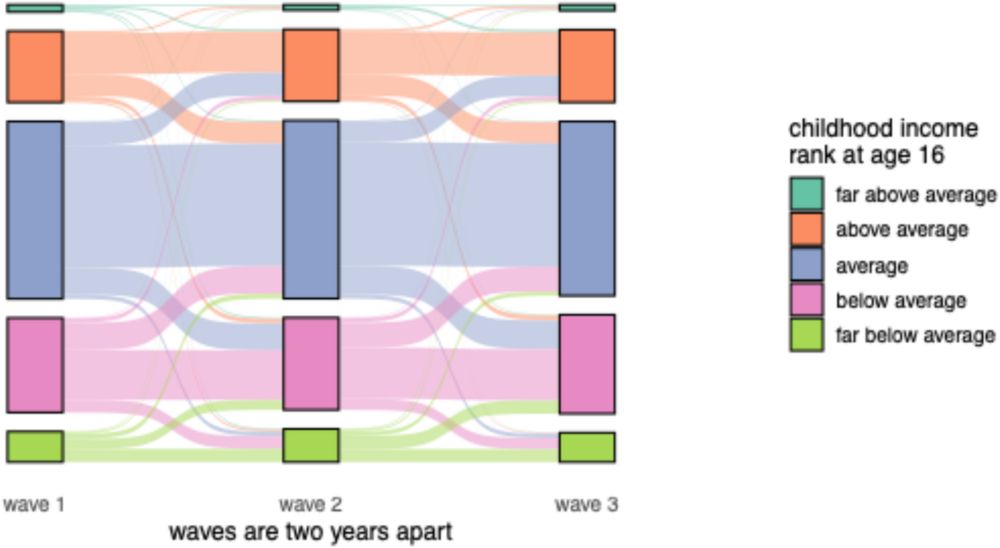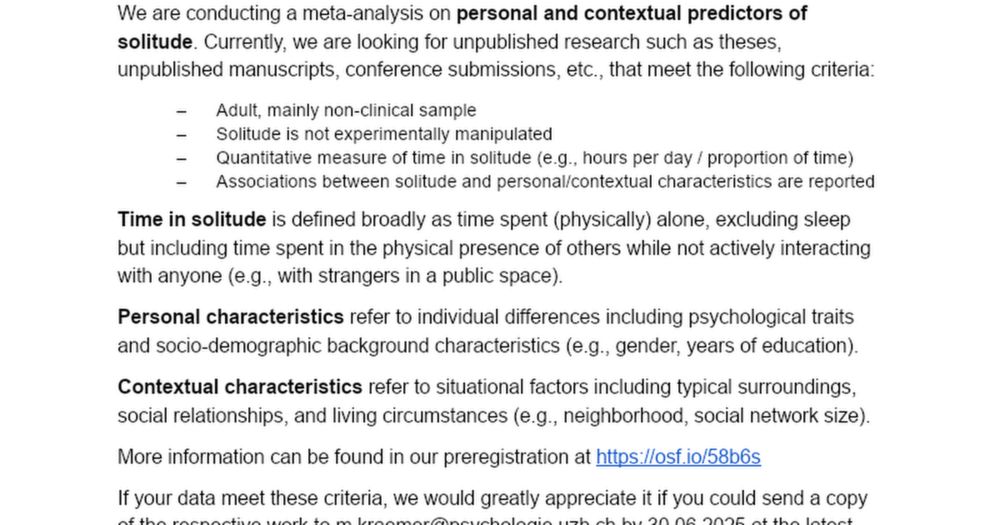
On 🤰🏻 leave
▶️60 openly available experience sampling datasets (16K+ participants, 740K+ obs.) in one place
▶️Harmonized (meta-)data, fully open-source software
▶️Filter & search all data, simply download via R/Python
Find out more:
🌐 openesmdata.org
📝 doi.org/10.31234/osf...
▶️60 openly available experience sampling datasets (16K+ participants, 740K+ obs.) in one place
▶️Harmonized (meta-)data, fully open-source software
▶️Filter & search all data, simply download via R/Python
Find out more:
🌐 openesmdata.org
📝 doi.org/10.31234/osf...
1/2
www.nature.com/articles/s41...

1/2
www.nature.com/articles/s41...
doi.org/10.1007/s112...
🧵👇 (1/5)

We captured 30-day emotion intensity & dysregulation data from EMA & examined in relation to cortisol (from hair) during the same period. Emotion intensity & hair cortisol levels were significantly associated among women with high (but not low) emotion dysregulation.

We captured 30-day emotion intensity & dysregulation data from EMA & examined in relation to cortisol (from hair) during the same period. Emotion intensity & hair cortisol levels were significantly associated among women with high (but not low) emotion dysregulation.
We hope it’s useful, and are keen to hear any feedback
Thanks again so much to @tashtc.bsky.social for all of her hard work creating this video series ✨

We hope it’s useful, and are keen to hear any feedback
Thanks again so much to @tashtc.bsky.social for all of her hard work creating this video series ✨
If you haven't heard about this scandalous study, see here: en.m.wikipedia.org/wiki/Study_329
www.jaacap.org/article/S089...
If you haven't heard about this scandalous study, see here: en.m.wikipedia.org/wiki/Study_329
www.jaacap.org/article/S089...
What people learn from punishment: A cognitive model

What people learn from punishment: A cognitive model

Comments/feedback are welcome!
doi.org/10.31234/osf...
Comments/feedback are welcome!
doi.org/10.31234/osf...
uni-wh.softgarden.io/job/59638545...

uni-wh.softgarden.io/job/59638545...
www.academics.de/jobs/w2-prof...

www.academics.de/jobs/w2-prof...
doi.org/10.1177/0890...
doi.org/10.1177/0890...
datamgmtinedresearch.com
1. Organizing data (Ch. 3)
2. Naming variables and files (Ch. 9)
3. Documenting data (Ch. 8)
4. Cleaning data (Ch. 14)

datamgmtinedresearch.com
1. Organizing data (Ch. 3)
2. Naming variables and files (Ch. 9)
3. Documenting data (Ch. 8)
4. Cleaning data (Ch. 14)
doi.org/10.1016/j.bp...
doi.org/10.1016/j.bp...

Full call for data: tinyurl.com/4hur45cw
Please reskeet, or message me if you know unpublished research!

Full call for data: tinyurl.com/4hur45cw
Please reskeet, or message me if you know unpublished research!
(Most room for change?)
(Most room for change?)

🚨 New paper and pre-print alert 🚨
With great colleagues @floriannaudet.bsky.social @richlyus.bsky.social @markhoro.bsky.social @joannamoncrieff.bsky.social and Gert van Valkenhoef
A longer 🧵

🚨 New paper and pre-print alert 🚨
With great colleagues @floriannaudet.bsky.social @richlyus.bsky.social @markhoro.bsky.social @joannamoncrieff.bsky.social and Gert van Valkenhoef
A longer 🧵
I'm presenting some findings on antagonism from meta-analyses, large scale text mining, and large language modeling tomorrow at 2:30!

I'm presenting some findings on antagonism from meta-analyses, large scale text mining, and large language modeling tomorrow at 2:30!
🗓️ Tonight (Thurs), 7-9pm
📍 Poster T72, The Topography of Momentary Impulsivity: Context Matters

🗓️ Tonight (Thurs), 7-9pm
📍 Poster T72, The Topography of Momentary Impulsivity: Context Matters
📅 Review begins Nov 15, 2025
👉 apply.interfolio.com/174418
Please share!
📅 Review begins Nov 15, 2025
👉 apply.interfolio.com/174418
Please share!

